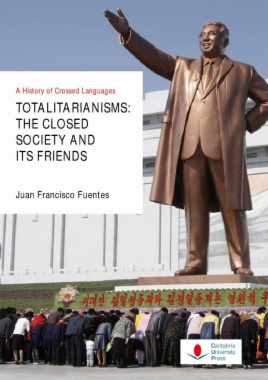It is striking that the main political concept coined by the century of democracy has been totalitarianism. Since its birth in fascist Italy in the 1920s, the term has made a long journey throughout different countries and periods. After representing the fascination for dictatorships during the interwar years, totalitarianism became a key concept of the ‘war of words’ waged between democracy and communism until the fall of the Berlin Wall. It was ‘a hot word for a Cold War’, as termed by the author of this book to convey the importance of this contest of crossed languages, which also included images, symbols and other forms of ‘senso-propaganda’.
The Closed Society and Its Friendshighlights the role played by language in the building of a dystopian civilization conceived as an alternative to the open society created by liberalism. The book analyses the dimension of totalitarianisms, from fascism and Nazism to communism, as political religions with some common features, such as the cult of personality and the conception of society as a community of believers. This fascinating essay on the dark side of the 20th century ends with a disturbing epilogue: ‘Is totalitarianism back?’
- Cover
- Title page
- Copyright page
- Contents
- Foreword
- Abbreviations
- List of Graphs and Tables
- Introduction. The Tyranny of the Moderns
- How the century of democracy became the century of totalitarianism (or vice versa)
- A creative anachronism
- From the ‘old, old’ totalitarianism to the new tyranny
- Part I. From Total War to Total State
- 1 The Birth of a Notion
- Prophets, oracles, genealogists
- Origin and fortune of the concept in fascist Italy
- The grand tour of a concept
- 2 War is a Blessing of God
- The genesis
- Lenin and war: a passion requited
- War is not over
- Part II. Profane Words, Sacred Symbols
- 3 Totalitarianism: A Linguistic Turn
- A question of life or death
- One language, many jargons
- Eja, eja, alalà: the irresistible power of nonsense
- 4 The Body is the Message: The Corporeal Metaphor in Totalitarian Language
- Why the body?
- Clothing is politics
- Totalitarianism as a body-builder
- The mystical body of the leader: sacralisation, Eucharist, sacrifice
- Part III. A Hot Word for a Cold War
- 5 The Golden Age of a Concept
- Interlude: World War II as a conceptual truce
- A war of words
- The making of a theoretical corpus: was ever there a ‘totalitarian paradigm’?
- 6 Détente: The Lost Paradigm
- From thaw to détente
- ‘A relic of a bygone era’
- An unexpected (and partial) revival
- 7 The End of an Epoch and a Concept (or Maybe not)
- Reaganism: a new totalitarian paradigm
- Perestroika: the insoluble dilemma
- ‘Such a thing as totalitarianism’
- Epilogue: Is Totalitarianism Back?
- Bibliography

